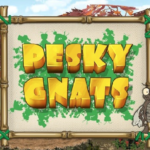
Linda Kaye and Kirsten Lawson summarise a large systematic review synthesising the effectiveness of applied and casual games on young people’s mental health.
[read the full story...]
Linda Kaye and Kirsten Lawson summarise a large systematic review synthesising the effectiveness of applied and casual games on young people’s mental health.
[read the full story...]
Theo Kyriacou and Andie Ashdown summarise a systematic review which finds that gaming interventions may be useful for depression, but not anxiety, in young people.
[read the full story...]
This review of the association between screen-time behaviour and diet, including a potentially cariogenic diet, in children younger than 12 years old includes 19 cross-sectional studies. All of the included studies suggest a relationship.
[read the full story...]
Leen Vereenooghe presents the results of an RCT of computerised cognitive behavioural therapy for people with learning disabilities, featuring the computer game “Pesky gNATs: The Feel Good Island”.
[read the full story...]
Ioana Cristea disputes the claims of a recent proof-of-concept RCT, which aims to prevent intrusive memories after trauma via a brief intervention involving Tetris computer game play in the emergency department.
[read the full story...]
This small RCT of a computer game to deliver oral health education in high caries risk children and families was highly satisfactory to users. Improvements in knowledge were demonstrated is the short term > however there was a high drop out rate an further studies are needed to assess change sin other groups and longer term benefits.
[read the full story...]
Sasha Danilina publishes her debut blog about a recent literature review on the effectiveness of gamification applied to health and wellbeing.
[read the full story...]